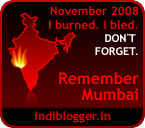The book is an autobiographical account of the author, a Kashmiri Pandit (KP) living in Kashmir, who, along with his family, was forced to flee the Valley in 1990s. The book's blurb reads: "Rahul Pandita was fourteen years old when he was forced to leave his home in Srinagar along with his family, who were Kashmiri Pandits; the Hindu minority within a Muslim-majority Kashmir that was becoming increasingly agitated with the cries of 'Azadi' from India. The heartbreaking story of Kashmir has so far been told through the prism of the brutality of the Indian state, and the pro-independence demands of separatists. But there is another part of the story that has remained unrecorded and buried. Our Moon Has Blood Clots is the unspoken chapter in the story of Kashmir, in which it was purged of the Kashmiri Pandit community in a violent ethnic cleansing backed by Islamist militants. Hundreds of people were tortured and killed, and about 3,50,000 Kashmiri Pandits were forced to leave their homes and spend the rest of their lives in exile in their own country. Rahul Pandita has written a deeply personal, powerful and unforgettable story of history, home and loss."
While all of us living in India are vaguely familiar with the Kashmir issue [as we refer to it], the issue of the KP exodus is not discussed much or referred to. I, in fact, was not even aware about it, till this book came out. Rahul has brought this issue out in the open and is fighting an almost lonely battle assisted by Sanjay Tickoo and Ashok Pandita. He is keeping a record of each and every Kashmiri Pandit killed in the Valley.
In the book, the author paints a very vivid and beautiful picture of Kashmir and his home, which his father built painstakingly and which had 22 rooms [which his mother never forgot to mention to others]. His house had fruit orchards in the veranda and he enjoyed a life like any other. Until that fateful day on January 19, 1990, when the KPs were ordered to either flee their homes, convert or be prepared to die. And the killings were usually barbaric in their form. It was not just that. KP women were raped, children killed and their houses looted as well.
You cannot not be affected while reading this book. Rahul's writing style is such that, for a long time, I had a feeling that there was someone behind me, poring over my shoulder. Such are his descriptions of the accounts of people hiding in their own homes from the separatists. The movement became so powerful that even friends and neighbours turned against these KPs.
For the last 24 years, these people have been living away from their homes - they literally had to flee taking with them only bare minimum possessions. And the relief camps provided by the Government only made mockery of their pain. It is surprising, however, that no central/state authority was willing to step in and stop it at that point in time.
Personally, I cannot imagine being asked to leave my house without knowing whether I shall be able to see it again. Rahul brings out this anguish well in the book - you are able to empathize with him while feeling your blood boiling at the same time.
Certain incidents/sentences in the book stayed with me. At one place, the author quotes the poet Paash's lines, 'Sabse khatarnaaq hota hai/humare sapnon ka mar jaana'. Elsewhere, he feels, 'Kashmir is memory, an overdose of nostalgia.' Still elsewhere, when he returns to his house to find it occupied by somebody else, 'A man knocking at his own door, finding someone else opening it, and then seeking permission to enter his own house.' Rahul also speaks about how his cousin Ravi [with whom he was very close] was killed and the effect that had on Ravi's parents.
It is not an easy book to read. At several places, you will be shocked and saddened to read the treatment meted out to Kashmiri Pandits in their own land for absolutely no fault of their own. And, even when the book ends, parts of it will continue to occupy your mind - how some people were naive enough to believe they could go back to their homes and were killed as a result; how, when a majority decides to take matters into their own hands, no responsible person can really do anything and how, at the end of the day, being asked to leave your home has to be among one of the worst things anybody could be asked to do.

7 comments:
Great review...
You've hit the hammer on the nail! We barely know about the atrocities being committed in that part of our country. While they're violent, sometimes bordering on gruesome, the government does precious little to address it.
I wanted to read this book, but couldn't muster the courage. Salute to your grit!
very true..exodus is the worst thing that can happen to anyone. I have seen Mr. Pandita's blog though but have not read the book, will read it sometime for sure now.
very true..exodus is the worst thing that can happen to anyone. I have seen Mr. Pandita's blog though but have not read the book, will read it sometime for sure now.
Thanks Vishal for your kind words. Would suggest mustering up the courage to read the book; you won't regret it. But it will haunt you for sure!
Thanks Ankita for taking time out to read my review & post a comment; I really appreciate it.
kd shoes
kobe byrant shoes
supreme clothing
golden goose sale
jordan shoes
kyrie 6 shoes
yeezy boost 500
lebron james shoes
supreme hoodie
pandora bracelet
f9v86h8z81 d7z27o8u07 n1f86x1v33 a8y57k6j50 y7v28o6f53 v4j22i2l17
Post a Comment